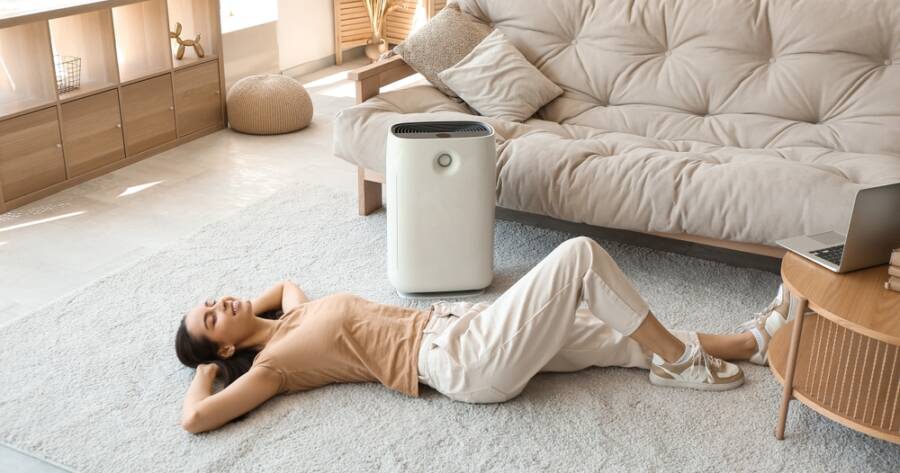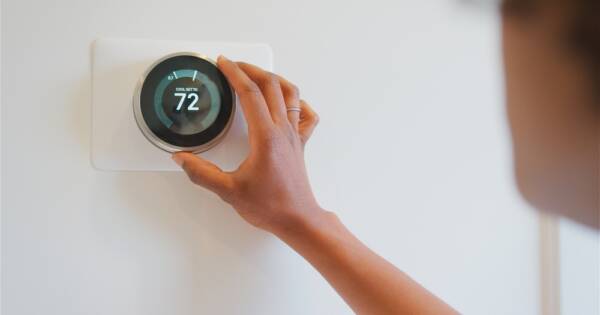The landscape of air conditioning is evolving swiftly, showcasing advanced technologies focused on sustainability and energy efficiency. The HVAC sector is integrating eco-friendly refrigerants, smart systems with Internet of Things capabilities, and renewable energy sources. Enhanced indoor air quality and efficiency innovations, alongside emerging models like HVAC as a Service, create a pathway for a greener, more efficient cooling environment.
Exploring the Future of Cooling with Advanced Air Conditioners
As the landscape of cooling technologies evolves, the future of air conditioning is being reshaped by advanced, environmentally friendly systems and innovative business models. The HVAC industry is witnessing a substantial transformation driven by the imperatives of sustainability, energy efficiency, and technological advancements.
The transition towards sustainable refrigerants is paramount, with the EPA’s plans to cut hydrofluorocarbon production by 85% by 2036. This move is fostering the adoption of alternatives like hydrofluoroolefins (HFOs), as well as natural refrigerants such as carbon dioxide and ammonia.
Smart HVAC Systems and Their Role in Efficiency
Smart HVAC systems are leading the charge in energy efficiency, equipped with advanced sensors and Wi-Fi connectivity that allow remote control via smartphones or tablets. These systems intelligently automate to save energy while maintaining optimal comfort levels.
Through the integration of IoT technology, smart air conditioners minimize operational costs by optimizing heating, cooling, and ventilation in real-time. This compelling control and energy monitoring approach appeals to environmentally conscious consumers seeking efficient cooling solutions.
Sustainable Energy Solutions in Cooling Technologies
The push for sustainable cooling is incorporating groundbreaking techniques such as geothermal heating and cooling systems. By utilizing the stable temperature of the earth, geothermal systems provide an energy-efficient alternative to traditional HVAC solutions.
Meanwhile, heat pumps are gaining traction for their ability to significantly lower carbon emissions and promote the use of renewable energy over fossil fuels. Integrating renewable sources, like solar power, into HVAC systems offers an opportunity to reduce greenhouse gas emissions and operational costs.
Innovations in Air Quality and System Efficiency
Post-pandemic, the focus on indoor air quality has never been more pronounced, with advanced filtration and ventilation technologies at the forefront. Enhanced air purification technologies like UV-C light purifiers and HEPA filters are effectively removing pollutants and ensuring cleaner indoor environments.
Moreover, Energy Recovery Ventilation (ERV) systems are becoming integral to achieving energy-efficient environments, balancing indoor and outdoor air exchanges while recovering heat and moisture.
The Rise of Innovative HVAC Business Models
Modern business models in the HVAC sector are shifting towards subscription-based services, labeled as HVAC as a Service (HVACaaS).
This evolution involves leveraging IoT platforms for proactive maintenance, scheduling services in advance, and offering packages equipped with data-analysis dashboards. This not only ensures regular system maintenance but also reduces upfront costs for consumers, fostering long-term relationships between service providers and customers.
Empowering the HVAC Industry with Technology
The integration of advanced diagnostics and monitoring technologies is enhancing HVAC system reliability and efficiency. Predictive maintenance through AI and machine learning prevents system breakdowns and fosters durability.
Furthermore, 3D printing technology is revolutionizing the production of HVAC components, enabling precise and efficient manufacturing that reduces material waste. These innovations ensure that the HVAC industry is well-equipped to meet future demands with improved energy efficiency and sustainability.
Learn More About Advanced Air Conditioners
Staying abreast of advancements in air conditioning technology is essential for consumers aiming to make informed choices about their cooling solutions. As the HVAC industry continues to evolve towards more sustainable, efficient, and technologically advanced systems, understanding these innovations can yield significant long-term benefits.
From enhanced comfort levels and reduced energy costs to improved indoor air quality and environmental impact, the future of cooling holds great promise. By exploring the latest trends and consulting with professionals, individuals can tailor their air conditioning solutions to their specific needs and circumstances, ensuring optimal outcomes for both the present and future.
Sources
Environmental Shift in Refrigerants




